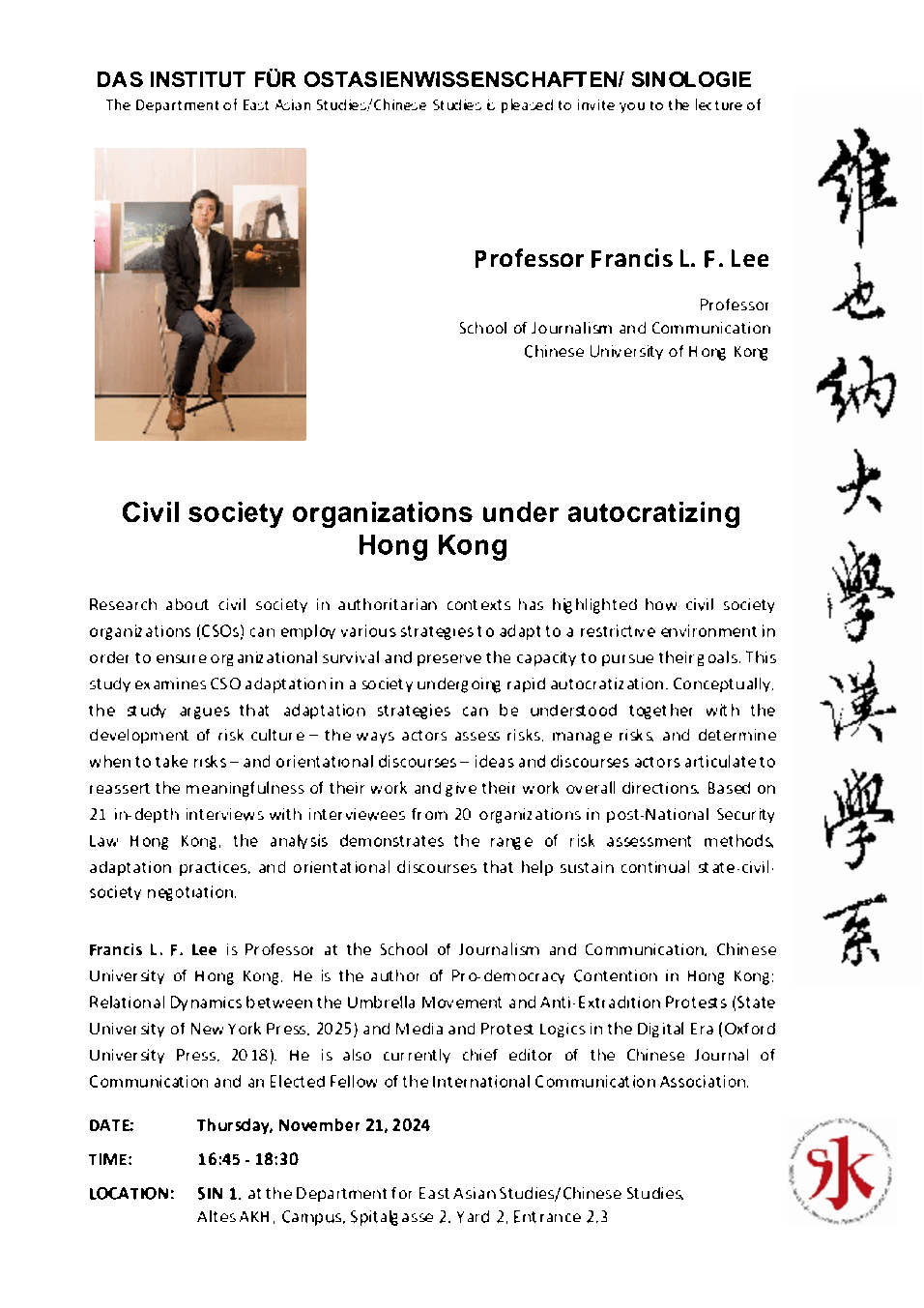Research about civil society in authoritarian contexts has highlighted how civil society organizations (CSOs) can employ various strategies to adapt to a restrictive environment in order to ensure organizational survival and preserve the capacity to pursue their goals. This study examines CSO adaptation in a society undergoing rapid autocratization. Conceptually, the study argues that adaptation strategies can be understood together with the development of risk culture – the ways actors assess risks, manage risks, and determine when to take risks – and orientational discourses – ideas and discourses actors articulate to reassert the meaningfulness of their work and give their work overall directions. Based on 21 in-depth interviews with interviewees from 20 organizations in post-National Security Law Hong Kong, the analysis demonstrates the range of risk assessment methods, adaptation practices, and orientational discourses that help sustain continual state-civil-society negotiation.
Francis L. F. Lee is Professor at the School of Journalism and Communication, Chinese University of Hong Kong. He is the author of Pro-democracy Contention in Hong Kong: Relational Dynamics between the Umbrella Movement and Anti-Extradition Protests (State University of New York Press, 2025) and Media and Protest Logics in the Digital Era (Oxford University Press, 2018). He is also currently chief editor of the Chinese Journal of Communication and an Elected Fellow of the International Communication Association.
For more information, please refer to the attached PDF
DATE: Thursday, November 21, 2024
TIME: 16:45 - 18:30
LOCATION: SIN 1, at the Department for East Asian Studies/Chinese Studies, Altes AKH, Campus, Spitalgasse 2, Yard 2, Entrance 2.3

